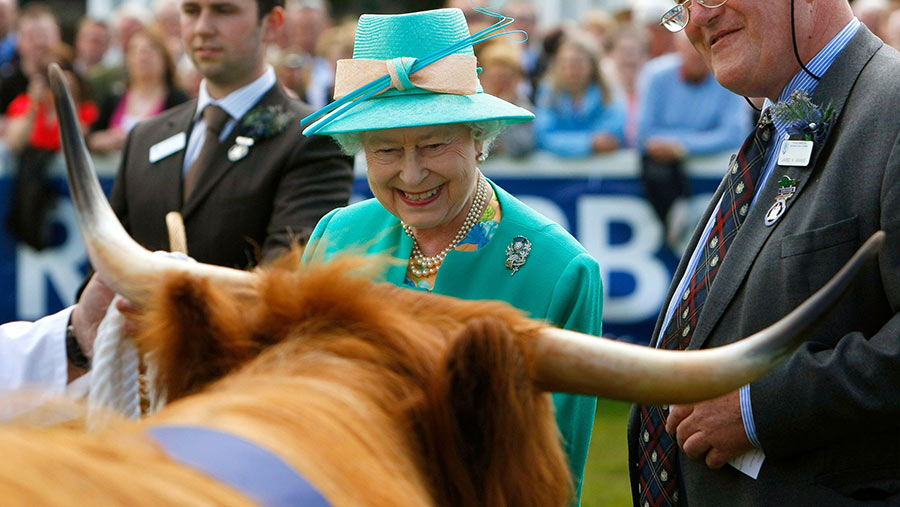Opinion: Jubilee reflections on farming’s treasured characters
 © Reuters/Alamy Stock Photo
© Reuters/Alamy Stock Photo I am blessed that 25% of my genes come from my indefatigable grandmother who, in her mid-90s, still drives a car and exercises daily.
She had a hip operation a few weeks ago and now she is charging around with even more vigour, like Steve Austin, the Six Million Dollar Man.
At the time of writing, she is holidaying in Scotland; probably putting her bionic limbs through their paces with a bit of Highland dancing, or maybe tossing the caber.
“Granny Airmiles”, we call her. In her 36 years of retirement, she has had nearly 200 holidays. Greenpeace curse her good health, but her travel agent sends her a Christmas card.
See also: Farming industry pays tribute to Caroline Drummond
Our family cherishes having a relation in their 10th decade who is in such rude health and fine spirits. Such relatives provide a vivid link to our past.
This is a feeling many of us will have felt during the Platinum Jubilee.
As one of the most recognisable faces on the planet, the Queen has been captured in photo, film and audio footage since her birth.
She is perhaps the first person in history for whom there is a celluloid record of every stage of her life, and she embodies a connection with history.
The Jubilee was not just an opportunity to reflect on the history of the last century, but also on the passage of time and our own journey from infancy to, if lucky, our dotage.
For the farming industry, many of us felt this way about the recently-departed Lord Henry Plumb, a man for whom the word “venerable” was created in the 1970s.
He was such a treasured fixture of the farming landscape that his death is like the loss of an ancient oak tree.
His life, from chairman of his local YFC in the Second World War to president of the European Parliament during the glory days of the Common Agriculture Policy, was one of British agriculture’s few remaining links to a bygone time in which the production of food was centre stage.
Such ponderings are why the death of Leaf chief executive Caroline Drummond, at such a young age, is so very, very sad.
This is because Caroline wasn’t a product of the past, she was a bridge to farming’s future.
Her vision, energy and ability to connect people for the common good have driven very positive changes in agriculture for decades.
She bridged cultural divides and could command the attention of both unreconstructed, horny-handed farmers and idealistic environmental campaigners – a testament not just to her delightful character, but also to an innate understanding of the concerns on each side of that divide.
When I was involved with the Oxford Farming Conference, an institution that Caroline herself once chaired, we had a standing joke.
If a speaker couldn’t come and we found ourselves with a gap in the programme, someone on the committee would quickly say, “Is it time to call Caroline yet?”
She could always be depended upon to turn up with something engaging, progressive and relevant to say. She will be sorely missed. I, like so many other people, counted her as a friend.
The memories of Caroline and Henry serve to remind us of the power of a positive and cheerful demeanour, and of the ability to share a message with people outside one’s own echo chamber.

